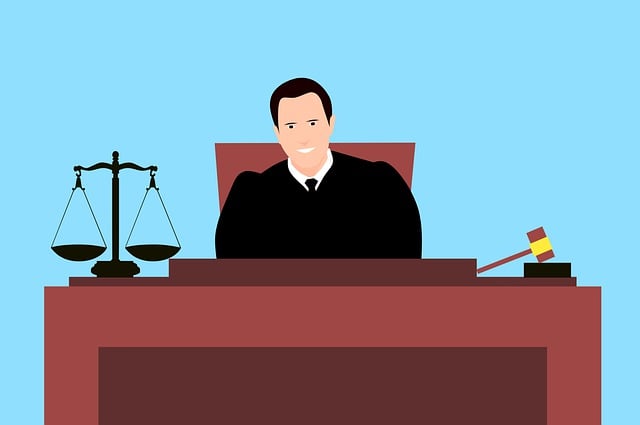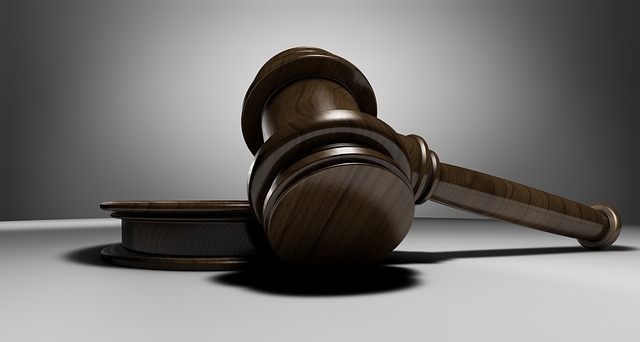Legal representation is crucial in criminal defense, offering accused individuals expert support throughout investigations and proceedings. Experienced lawyers navigate complex legal systems, protect rights, and develop robust strategies using their deep understanding of criminal law and procedures. They investigate cases, challenge evidence, cross-examine witnesses, and provide strategic defenses. This specialized knowledge ensures a fair process, maximizes chances of a favorable outcome, and offers peace of mind to the accused. In post-trial stages and appeals, legal professionals continue to advocate for clients' rights using their criminal proceedings expertise.
In the intricate world of criminal defense, legal representation is paramount. Understanding the role of counsel goes beyond merely advocating for the accused; it involves navigating complex criminal proceedings with unparalleled expertise. Skilled lawyers play a crucial part in ensuring fair trials and safeguarding the rights of individuals facing charges. This article explores the multifaceted aspects of legal representation in criminal defense investigations, delving into the importance of expertise, rights and obligations of counsel, strategies employed by seasoned defenders, and building robust cases that protect the innocent.
- Understanding the Role of Legal Representation in Criminal Defense
- The Importance of Expertise in Navigating Criminal Proceedings
- Rights of Accused Individuals and the Obligations of Their Counsel
- Strategies Used by Skilled Criminal Defense Lawyers
- Building a Strong Case: Evidence, Testimony, and Legal Arguments
- Post-Trial Processes and Appeal Options with Legal Representation
Understanding the Role of Legal Representation in Criminal Defense

Legal representation is a cornerstone in criminal defense investigations, providing individuals accused of crimes with crucial support and expertise throughout the entire process. The role of lawyers extends far beyond simply presenting a defense; they act as guides, advocates, and strategists, ensuring their clients’ rights are protected and their interests are upheld. In criminal proceedings, where the stakes are high, legal representation offers a level of protection that self-representation cannot match.
Lawyers with experience in criminal defense bring a wealth of knowledge and skills to bear on complex cases. They understand the intricate details of the law, the procedures involved, and the potential consequences of various outcomes. This expertise enables them to navigate the legal landscape, challenge evidence, cross-examine witnesses, and formulate strategic defenses tailored to each unique case. By engaging qualified legal counsel, individuals facing criminal charges gain access to a powerful tool in their pursuit of justice.
The Importance of Expertise in Navigating Criminal Proceedings

In the intricate landscape of criminal defense, one of the most vital assets a suspect can have is a lawyer with deep expertise in navigating criminal proceedings. The legal system is notoriously complex, with a web of rules, regulations, and statutes that can easily ensnare the unwary. An attorney who specializes in criminal defense understands these intricacies and can ensure their client’s rights are protected throughout every stage of the process.
This expertise translates into several key advantages for the accused. It enables them to mount a robust defense strategy, challenging the prosecution’s evidence and procedures with precision and legality. More importantly, it provides comfort and peace of mind, knowing that their case is in capable hands. An expert legal representative can anticipate potential pitfalls and navigate them skillfully, ultimately shaping the outcome of the criminal proceedings in their client’s favor.
Rights of Accused Individuals and the Obligations of Their Counsel

In any criminal defense investigation, the rights of accused individuals are paramount. These rights, enshrined in law, ensure a fair and just process. Counsel, acting as advocates for their clients, have both the responsibility to protect these rights and the obligation to provide robust legal representation. This includes ensuring that the accused understands their rights, gathering and presenting evidence effectively, and challenging any illegal or unfair practices during criminal proceedings.
Expertise in criminal law is crucial here. Defense attorneys must be well-versed in interpreting laws, understanding procedural rules, and employing strategic defenses. They need to navigate complex legal landscapes, often dealing with intricate details and nuances that can make or break a case. This expertise enables them to provide the best possible representation, ensuring that their clients’ rights are not only respected but also vigorously defended.
Strategies Used by Skilled Criminal Defense Lawyers

Skilled criminal defense lawyers employ a range of strategies to navigate complex criminal proceedings, leveraging their expertise to ensure their clients’ rights are protected. They begin by thoroughly investigating the case, examining evidence for any inconsistencies or weaknesses that can be exploited in court. This involves cross-examining prosecution witnesses, interviewing potential alibis, and analyzing forensic data to build a robust defense strategy.
These lawyers also leverage their deep understanding of the legal system to navigate the intricate procedures and regulations, often filing pre-trial motions to suppress evidence or challenge the admissibility of statements made by their clients. They stay abreast of relevant case law, using previous judicial decisions to bolster their arguments in court. This comprehensive approach ensures that every angle is covered, providing the best possible defense for their clients throughout criminal proceedings.
Building a Strong Case: Evidence, Testimony, and Legal Arguments

In building a strong case for criminal defense, legal professionals leverage a multifaceted approach. They meticulously gather and analyze evidence, scrutinizing every detail to uncover potential weaknesses in the prosecution’s case. This involves examining physical evidence, reviewing documents, and sometimes employing expert witnesses to provide specialized insights. The strategic presentation of this evidence forms the backbone of the defense argument.
In addition to evidence, testimony plays a pivotal role. Skilled defenders cross-examine witnesses, aiming to expose inconsistencies or biases. They also present their own witnesses who can offer alternative explanations or contradict the prosecution’s narrative. Through robust legal arguments, based on both the law and the unique circumstances of the case, they advocate for their client’s rights and freedom. This comprehensive strategy ensures that every angle is covered, leveraging the criminal proceedings expertise to achieve the best possible outcome.
Post-Trial Processes and Appeal Options with Legal Representation

Post-trial processes and appeal options are crucial aspects of criminal defense, highlighting the significance of legal representation throughout the entire journey. With their profound knowledge of criminal law and procedures, lawyers play a pivotal role in guiding clients through the intricate web of appeals and retrials. They ensure that all grounds for appeal are meticulously evaluated and presented, offering strategic insights to enhance the client’s chances of a favorable outcome.
Experienced legal representatives possess the expertise to navigate complex legal landscapes, translating technical jargon into comprehensible arguments for higher courts. This specialized knowledge is invaluable when presenting evidence, challenging testimony, and arguing against convictions, ultimately fostering a fair and just criminal justice system.














